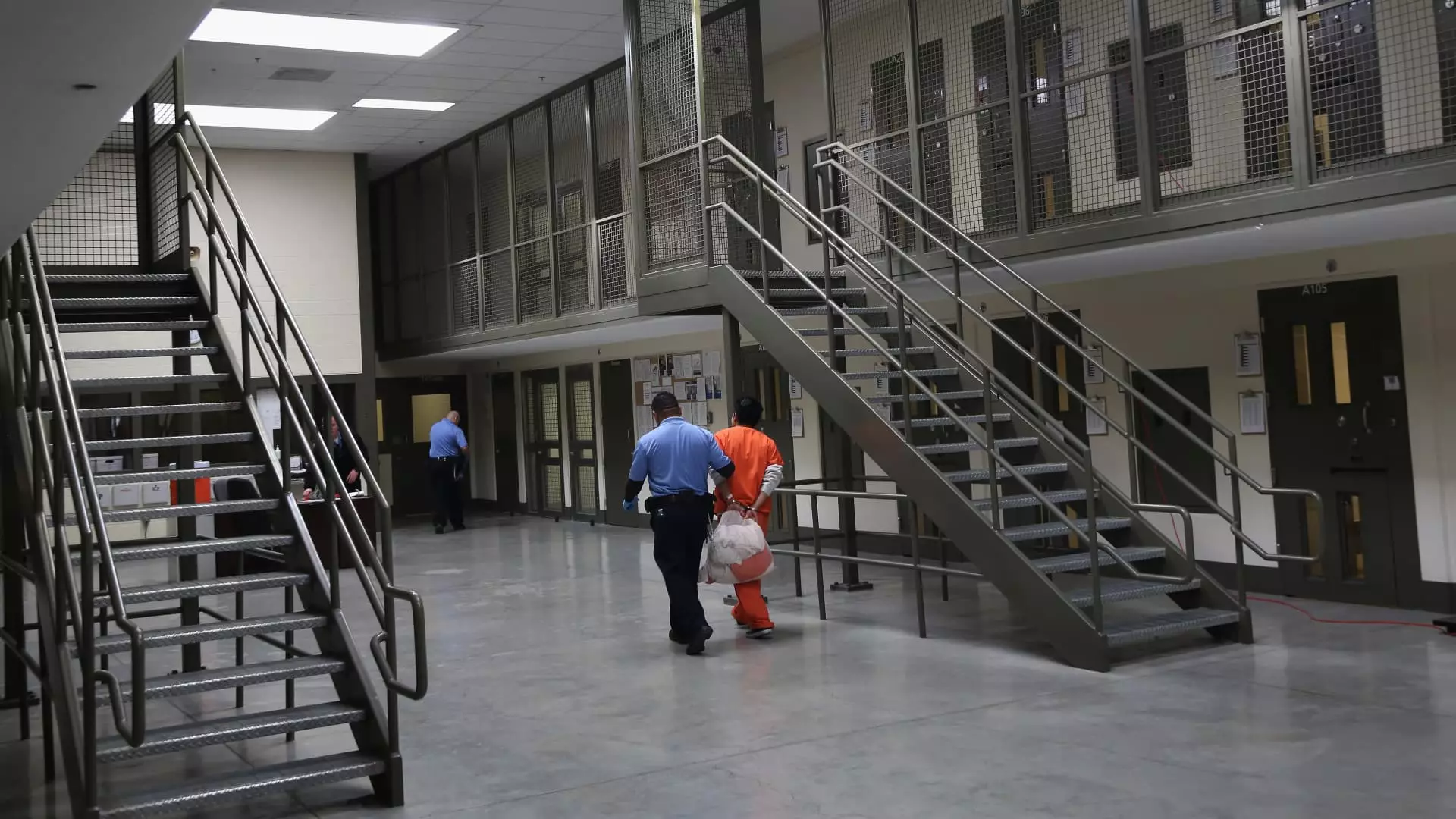The recent fluctuations in premarket trading reveal a fragile and volatile economic landscape, heavily influenced by political maneuvering and societal shifts. Tesla’s sharp 6% decline in response to Elon Musk’s announcement of forming the “America Party” underscores the intersection of corporate leadership and partisan activism. Musk’s bold political gambit appears to be more than just a personal stance; it signifies a broader challenge to establishment politics which, in turn, unsettles investor confidence. The feud with Trump, characterized by mutual dismissiveness, amplifies concerns about political stability and its ripple effects on the tech sector. Investors skeptical of upheaval and polarized leadership appear to be tightening their grip on tech stocks, with Tesla bearing the brunt.
Meanwhile, the resurgence of private prison corporations such as Geo Group and CoreCivic by over 7% highlights a disturbing preference for financially lucrative, yet ethically questionable, sectors. Their gains follow legislative provisions increased funding for immigration detention centers, reflecting how government policy can directly steer markets toward controversial industries. This trend exposes a troubling bias within the economic system—favoring short-term gains at the expense of social justice and public opinion. The private prison sector’s rise is a stark reminder that profit motives often eclipse societal values, especially when political decisions favor tough-on-immigration policies.
Mixed Signals and Fragile Optimism in Healthcare and Energy
Molina Healthcare’s modest 1% growth signifies a cautious optimism. Despite projecting a downward revision of full-year earnings, the company’s leadership insists that long-term prospects remain bright, citing resilience against short-term medical cost pressures. This cautious stance suggests that even essential sectors like healthcare are not immune to the overarching uncertainty, yet they continue to be viewed as stable investments for the discerning Center-Right investor who values economic resilience over ideological extremes.
Conversely, the energy sector shows signs of vulnerability. Shell’s nearly 3% decline stems from weakened gas trading, unveiling the fragility of traditional energy giants in the face of volatile commodity prices and shifting policies. As environmental regulations tighten and alternative energies gain favor, oil and gas firms find their profitability increasingly precarious, casting doubt on their capacity to sustain long-term shareholder value.
The Aggressive Market Adaptation Revealed in Tech and Consumer Goods
While some sectors falter, others showcase resilience and adaptive growth. Constellation Brands’ slight increase, driven by Jefferies’ upgrade, exemplifies the value of balanced portfolios. The company’s recovery is bolstered by its profitable wine division and cash flow strength, reinforcing that well-managed consumer brands can withstand economic headwinds. Meanwhile, WNS Holdings’ 14% surge following Capgemini’s acquisition illustrates the strategic importance of consolidations that can provide stability and growth opportunities amid broader market turbulence.
Yet, the energy of market optimism remains tempered. SolarEdge Technologies, which had an impressive rally when the removal of solar project taxes was anticipated, subsequently faced a 2.8% drop as federal support diminished. This oscillation highlights the precariousness of renewable investments heavily reliant on government incentives—an indication that sustainable growth must be backed by structural policy stability rather than short-term legislative incentives.
Since the market’s current volatility showcases a landscape where caution and opportunity coexist in a delicate balance, investors with a pragmatic, center-right outlook might interpret these shifts as signals to prioritize resilience, legal stability, and responsible growth—values that will shape the economic trajectory amid political turbulence.

